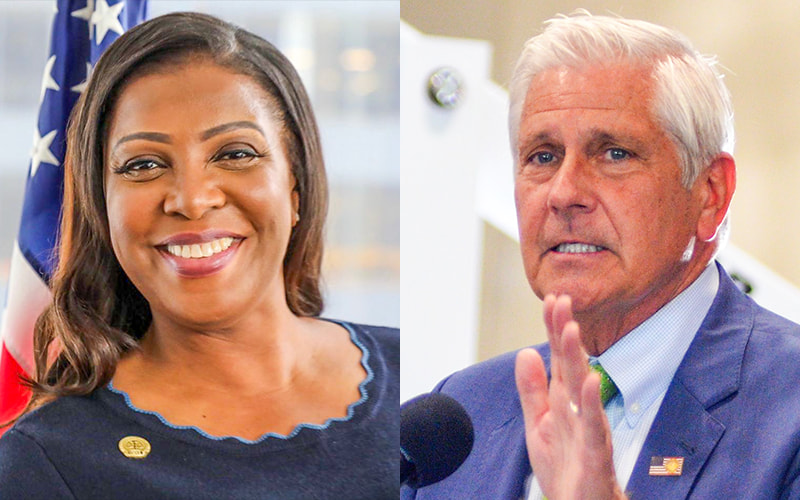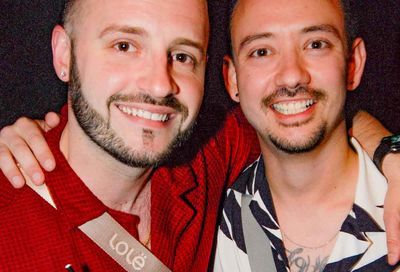Opponents of California conversion therapy bill claim it would ban the Bible
Bill's sponsor says it will not stop pastors from engaging in conversion therapy, so long as they don't charge for it

Opponents of a California bill that would classify conversion therapy as a form of consumer fraud are launching an all-out effort to stop it from passing. They claim the legislation is so broadly written that it would effectively ban any written materials — including the Bible — that insist that sexual orientation can be changed or that homosexual behavior should be discouraged.
Both Politifact and Snopes.com have debunked the claim that the bill would ban the Bible as “mostly false” or “false,” respectively. But conservatives insist that both sites have shown unfair liberal bias in the past, and thus, cannot be believed when it comes to discerning whether the bill would infringe on the First Amendment rights of ordinary people who oppose homosexuality or transgenderism.
As written, the bill prohibits “sexual orientation change efforts,” which are defined as “any practices that seek to change an individual’s sexual orientation,” including “efforts to change behaviors or gender expressions, or to eliminate or reduce sexual or romantic attractions or feelings toward individuals of the same sex.”
The bill says that such efforts do not include “psychotherapies that: (A) provide acceptance, support, and understanding of clients or the facilitation of clients’ coping, social support, and identity exploration and development, including sexual orientation-neutral interventions to prevent or address unlawful conduct or unsafe sexual practices; and (B) do not seek to change sexual orientation.”
The bill would also go further, banning the for-profit sale of conversion therapy, meaning that those who “sell” themselves as able to change sexual orientation or gender identity and charge money for the service would be prosecuted under the law.
Because the bill cites findings or rulings from mental health and medical organizations that have condemned conversion therapy, any mental health practitioner who claims to be able to change a person’s sexual orientation or gender identity in exchange for money would be considered guilty of consumer fraud because they are promising specific results that they cannot deliver.
Opponents of the bill have criticized its vagueness, noting that it doesn’t just apply to licensed medical practitioners — as does the state’s existing ban on conversion therapy on minors — but to any individual who offers conversion therapy services. They claim that this could apply to anyone who insists that sexual orientation or gender identity can be changed, such as a pastor or religious advisor, who offers their services in exchange for compensation.
Writing for the National Review, David French, who specializes in studying cultural issues including gender politics and sexuality, claims that the bill violates the First Amendment protections of free speech and freedom of religion, primarily for those who ascribe to non-LGBTQ-affirming religious traditions, such as mainline Christianity.
“Christian orthodoxy is simple — regardless of a person’s desires (their ‘orientation’), the standard of right conduct is crystal clear. Sex is reserved for marriage between a man and a woman. When it comes to ‘gender expression,’ there is no difference between ‘sex’ and ‘gender,’ and the Christian response to gender dysphoria is compassion and treatment, not indulgence and surgical mutilation,” French writes.
“Put another way, there is a fundamental difference between temptation and sin. California law would intrude directly on this teaching by prohibiting even the argument that regardless of sexual desire, a person’s sexual behavior should conform to Biblical standards.”
Citing French’s piece, The Federalist‘s Robert Gagnon eviscerates Snopes’ interpretation of the bill as posing no immediate harm to Christians and not explicitly banning the Bible. Writes Gagnon:
“Given the track record of zealous LGBTQ advocacy in this country, where coercive affirmations of ‘gay marriage’ have been found in the Fourteenth Amendment (1868) that grants full citizenship rights to ex-slaves and in interpreting the Title IX ban of ‘sex discrimination’ in schools and colleges (1972) to include discrimination based on homosexual practice and transgender identity, ‘unclear’ means: We will use this law against you.”
Working from the assumption that overzealous judges will interpret the bill in a way that would outlaw “religious or moral instruction that seeks to change homosexual behavior and transgender identity,” Gagnon notes that the bill does not explicitly prevent the state from doing so.
“Read the bill. There is no religious exemption. There is no restriction to mental health professionals. There is not even a restriction to claims about changing a person’s sexual orientation or transgender feelings in whole or part. The bill is quite clear that any ‘efforts to change behaviors or gender expressions’ are included in the ban on attempts to change a person’s ‘sexual orientation,'” he writes.
“Consequently, selling religious or secular books (pamphlets, videos, audios, etc.), holding conferences, teaching courses in a college or seminary where tuition is paid, giving a speech at a paid venue, counseling people for a fee, or perhaps even posting online articles in a site that requires a paid subscription, in which it is asserted (in whole or part) that it is morally wrong for people to engage in homosexual practice or identify as ‘gay’ or ‘transgender,’ all could be treated as a violation of California Assembly Bill 2943,” adds Gagnon.
Writing in the Christian Post, John Stonestreet and Roberto Rivera also opine that the bill violates the First Amendment, prohibiting therapists or counselors from suggesting that a person avoid acting on their same-sex desires. They also claim that the bills use of terms like “goods,” “acceptance,” “support,” and “understanding” are not clearly defined, and could be challenged in court.
“For example, if a psychotherapist doesn’t try to change a person’s sexual orientation or gender identity but is, in the patients’ eyes, insufficiently accepting, supportive, and understanding, has he run afoul of AB 2943?” Stonestreet and Rivera write. “And what constitutes a ‘good?’ Does an academic field of study count as a ‘good’ or ‘service?’ The implications for Christian colleges and universities are dire. Will a Summit Ministries conference, which teaches students they don’t need to act on same-sex attraction or gender dysphoria, be illegal in California?”
And Monica Burke, writing in an op-ed in the Daily Signal, writes that under the bill’s overly broad language, the law “would be triggered when a transaction occurs — a counselor’s payment, an attendance fee, the cost of a book, or a pastor’s speaking fee. Anyone who is offended by a statement, teaching, or practice with regard to sexual orientation and gender identity could then file a lawsuit against a minister, counselor, author, store, or educational institution that offended them.”
And even if judges did not subscribe to a broad interpretation of the law, Burke insists, the law would still have a “chilling effect”” on free speech, as people with traditional views of sexuality censor themselves to avoid legal action.
In light of the criticism, which has gained traction among right-wing circles on social media, Assemblymember Evan Low, the chief sponsor of the bill, has taken to Twitter to clarify the intent of his bill.
“A church or individual may still practice conversion therapy if they do so without charging for this fraudulent service,” tweets Low. “It does not ban bibles nor does it ban the basic sales of books as some would have you believe.”
Support Metro Weekly’s Journalism
These are challenging times for news organizations. And yet it’s crucial we stay active and provide vital resources and information to both our local readers and the world. So won’t you please take a moment and consider supporting Metro Weekly with a membership? For as little as $5 a month, you can help ensure Metro Weekly magazine and MetroWeekly.com remain free, viable resources as we provide the best, most diverse, culturally-resonant LGBTQ coverage in both the D.C. region and around the world. Memberships come with exclusive perks and discounts, your own personal digital delivery of each week’s magazine (and an archive), access to our Member's Lounge when it launches this fall, and exclusive members-only items like Metro Weekly Membership Mugs and Tote Bags! Check out all our membership levels here and please join us today!


























